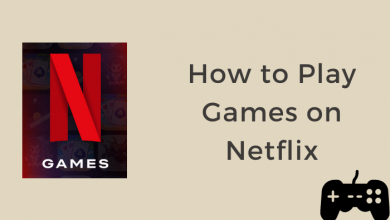In an era where digital gaming has become a staple in the entertainment diets of millions globally, the conversation around responsible gaming is more pertinent than ever.
As we delve deeper into the virtual realms of adventure, strategy, and social interaction, the lines between leisure and excess can blur, making it crucial to establish and promote strategies for responsible gaming. This article explores a multifaceted approach to ensure gaming remains a positive aspect of our digital lives, touching on self-regulation, community support, and industry standards.
Contents
- Understanding and Setting Limits
- Self-Awareness and Boundaries
- Age-Appropriate Content
- Balancing Gaming with Life
- Integrating Physical Activity
- Social Interactions Outside Gaming
- Community and Support
- The Role of Gaming Communities
- Support Systems for Problematic Gaming
- Industry Responsibility
- Developing Healthier Gaming Environments
- Educational Initiatives and Parental Controls
- Evaluating Gaming Platforms Responsibly
- Conclusion
Understanding and Setting Limits
Self-Awareness and Boundaries
The first step towards responsible gaming is cultivating self-awareness about gaming habits. Recognizing the signs of excessive gaming—such as neglecting responsibilities, physical discomfort, or emotional distress—is essential.
Once aware, setting clear boundaries becomes the next critical move. This includes allocating specific hours for gaming, ensuring it doesn’t infringe upon time meant for work, sleep, or social interactions. Employing apps or platform features that track gaming time can aid individuals in maintaining these boundaries.
Age-Appropriate Content
Players and guardians need to be vigilant about the content within games. The rating systems, such as ESRB (Entertainment Software Rating Board) in the United States and PEGI (Pan European Game Information) in Europe, provide guidelines on game suitability based on age and content. Adhering to these ratings ensures that players engage with appropriate content for their developmental stage, protecting them from potential harm or discomfort.
Balancing Gaming with Life
Integrating Physical Activity
Incorporating physical activity into one’s routine is a practical strategy for balancing gaming and health. Sedentary behavior associated with prolonged gaming sessions can be mitigated by setting regular intervals for stretching, walking, or engaging in any form of exercise. This not only combats the physical downsides of sitting for too long but also enhances cognitive function and mood, making gaming a more enjoyable and sustainable hobby.
Social Interactions Outside Gaming
While many games offer rich social experiences, fostering relationships outside the digital realm is crucial for a well-rounded life. Encouraging gamers to participate in non-digital social activities helps maintain a healthy balance. Whether it’s joining clubs, engaging in sports, or simply spending time with family and friends, these interactions contribute to emotional well-being and reduce the risk of gaming becoming an isolative activity.
Community and Support
The Role of Gaming Communities
Gaming communities, both online and offline, play a significant role in promoting responsible gaming. These communities can offer support, share strategies for balancing gaming with other life aspects, and provide a platform for discussing challenges related to gaming habits. Encouraging respectful and supportive interactions within these communities fosters a positive gaming culture that values well-being alongside entertainment.
Support Systems for Problematic Gaming
For individuals struggling with gaming habits, seeking support is crucial. Many organizations and online resources offer help for gamers and their families. Bullet points to consider include:
- Utilizing counseling services that specialize in digital and gaming addictions.
- Engaging in forums or support groups dedicated to addressing excessive gaming.
- Exploring apps and tools designed to help manage gaming time and activities.
Industry Responsibility
Developing Healthier Gaming Environments
Game developers and publishers are responsible for creating environments that encourage responsible gaming. This can involve designing games that promote moderation, such as rewarding players for taking breaks or implementing features that remind players to engage in other activities. Transparency regarding the probabilities of loot boxes or in-game purchases can prevent exploitative practices and promote a healthier gaming culture.
Educational Initiatives and Parental Controls
The industry should also invest in educational initiatives that inform players and parents about the importance of responsible gaming. Providing comprehensive guides on setting up parental controls, understanding game content, and recognizing signs of excessive gaming can empower users to make informed decisions. Moreover, platforms can enhance parental control features to give guardians more oversight and control over gaming habits, further supporting a balanced approach to digital play.
Evaluating Gaming Platforms Responsibly
When choosing gaming platforms, especially for those interested in online casinos, conducting thorough research is crucial to ensure a safe and enjoyable gaming experience. Reading up on reputable reviews, such as these detailed slots.lv review, can provide insights into user experiences, game quality, and the platform’s commitment to responsible gaming practices. This step helps players make informed decisions, ensuring they engage with platforms that prioritize user safety and responsible gaming standards.
Conclusion
As we navigate the digital age, fostering a culture of responsible gaming is essential for ensuring that gaming remains a source of joy, growth, and connection.
By emphasizing self-regulation, encouraging a balanced lifestyle, leveraging community support, and advocating for industry responsibility, we can cultivate a gaming environment that respects and enhances our well-being. As stakeholders in this vibrant ecosystem, we must champion these strategies, ensuring that gaming continues to enrich our lives without overshadowing them.



